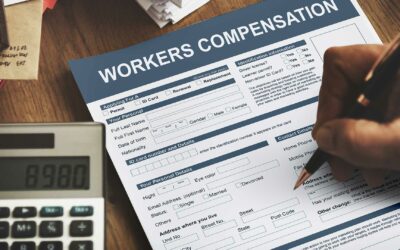After suffering an injury at work, it becomes important to know what may or may not qualify for workers’ compensation. After all, you’d want to know whether your employer can assist you with the medical treatments that will be needed for you to make a full recovery. But from state-specific rules to the varieties of injuries that one can suffer, it can almost feel like a maze to navigate just to get the money you need to find a restful recovery.
Let’s take a look at what you need to do as well as what kinds of injuries can possibly qualify you for a workers’ compensation claim.
Step One to Any Claim: Proving Your Injury is Work-Related
There are all kinds of injuries that can occur at work, whether by a sudden accident like at a construction site or by cumulative stress resulting in an injury like carpal tunnel. But in the end, in order to get the workers compensation process going, you must prove that that particular injury you’ve suffered was done while on the job, or legally speaking, AOE (Arising Out of Employment)/COE (Course of Employment).
Usually, if an injury occurs because of an accident at work such as a construction site accident, it becomes easy to prove that the injury fulfills the AOE/COE requirement. But some circumstances can complicate the process, especially if the worker is known to perform activities outside of work that could potentially inflict the same injuries. Injuries that develop overtime, such as carpal tunnel, are one such injury that can be just as connected to work as it could be connected to something outside of work such as at-home computer use. It doesn’t make a workers’ compensation claim impossible, but it certainly makes proving your injury as work-related more challenging.
Workplace Illnesses
You may have heard of it—black lung disease that coal miners have had to struggle with, asbestosis for construction workers and HVAC workers, and more. These are just a couple examples of what can count as a workplace illness because they are caused by hazards that exist within a certain work environment and have been medically proven to be a common link to illness for workers of that field. But what happens when you experience an illness that isn’t commonly linked to your job?
Diseases such as heart disease and high blood pressure both can be very hard to prove as being related to your job, since there are many factors that can contribute to diseases like those. They can still be proven, but it will take more work on your part to provide the medical documentation and other evidence that will help prove your claim.
There are, however, some jobs that do take heart disease and other “common” life diseases into account—the naturally dangerous jobs of firefighters and law enforcement both get these considerations in a number of states in the USA.
What About COVID-19?
The COVID-19 pandemic has created a unique and uncertain situation at many workplaces. For workers that lose the ability to work because of COVID-19, or who contract COVID-19 because of others at their workplace—they may be eligible for workers’ compensation benefits depending on the laws of their state. Also, like other workers’ compensation claims, it must be proven that you had contracted COVID while you were working and that your employer had created a situation that left you at a much greater risk than was reasonable for anyone else.
If you are a healthcare worker, your state might already have some measures in place to make getting workers’ compensation easier because of the heightened risk that your job places you in relation to COVID-19. See what measures your state has in place for workers in your kind of job position.
New Injuries from Preexisting Conditions
Even with a pre-existing condition that was around before you took a job, if an injury should occur at work that causes aggravation of a pre-existing condition. Be aware of your state’s rules on these kinds of claims—workers’ compensation claims like these can possibly have an effect on certain disability benefits. Also, some states will deny benefits if that preexisting condition was a result of an injury that is not related to work. Speak with a workers’ compensation lawyer to get further details on your state’s laws surrounding preexisting conditions.
Injury from Repetitive Motion and Strain
Also known as an injury from cumulative trauma, repetitive strain injuries (also known as RSIs) are common injuries that affect many people in many sorts of occupations. It extends beyond just those who work in offices because of keyboard and mouse overuse. RSIs can occur to anyone from factory and construction workers to landscapers and computer programmers. Some of the most common RSIs are carpal tunnel syndrome and back issues.
Stress-Related Injuries/Injury Induced by Excessive Mental Stress
While mental health has grown in importance in the USA over the years, it is unfortunately still a challenge to get workers’ compensation for illnesses caused by excessive stress. A lot of states do, however, count PTSD as a workers’ compensation eligible illness. But even for states that do offer workers’ compensation benefits for those who’ve been experiencing exceptional mental stress, the evidence requirements for those claims are still relatively astronomical compared to physical injuries.
Flipped around, stress that comes from injuries experienced at work do have a higher chance of being counted as eligible for workers’ compensation.
Death at Work
Should an employee die because of work-related injuries or illness, the person’s family and loved ones may be eligible to the death benefits of workers’ compensation. People eligible usually include the person’s spouse, their children, and their direct family members who might be financially dependent on the employee.
Ensure You Get the Compensation You Truly Deserve—Find a Workers’ Compensation Law Firm with TopResearched
It is the duty of your workplace to make your job environment safe for you to perform your duties. But when that fails, you deserve the proper compensation to seek proper and comprehensive treatment so that you can be back on your feet and back to work in optimal condition. But when that compensation coverage fails, a workers’ compensation lawyer may be exactly what you need to learn more about your rights and to investigate whether there is more compensation that you can get, so that you can focus fully on recovery and healing, instead of worrying about lost wages and excess medical bills. TopResearched makes this process a little easier by finding the best workers compensation lawyers in and around your area and putting them together into one place in an easy-to-read list. Get recovery and find peace of mind with the featured workers’ compensation lawyers on TopResearched!








